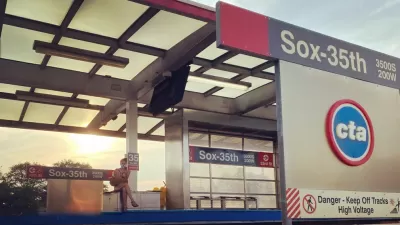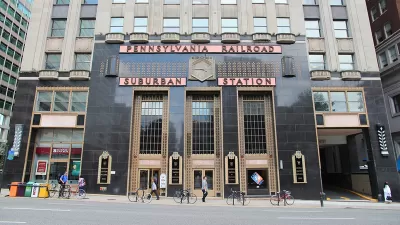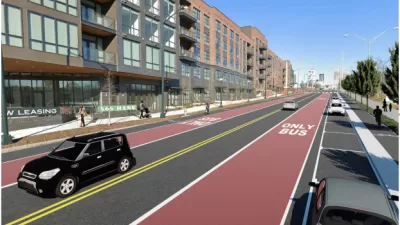In November, Wake County, North Carolina voters will decide on a half-cent sales tax to fund a plan to improve transit in the Research Triangle (home to North Carolina State, Duke, and the University of North Carolina-Chapel Hill).

"Wake County residents will decide in November whether to increase the local sales tax by a half-cent to pay for what county leaders are calling a transformational transit plan that would connect the Triangle with more buses and trains," reports Paul A. Specht.
The Wake County Transit Plan proposes $2.3 billion "to beef up bus service across the county and bring commuter trains to the area by 2027," according to Specht. If voters approve the project, the sales tax "would account for about $1 billion of the project’s cost in the first decade. A new vehicle registration fee and federal funds would cover the remaining $1.3 billion."
As for the details of the plan that would be funded by the sales tax, vehicle registration fee, and federal funding, the plan would increase bus frequencies, add 20 new miles of bus rapid transit service, and a partnership with Wake's neighbors in Durham County to launch 37 miles os rush-hour commuter trains.

Planetizen Federal Action Tracker
A weekly monitor of how Trump’s orders and actions are impacting planners and planning in America.

Maui's Vacation Rental Debate Turns Ugly
Verbal attacks, misinformation campaigns and fistfights plague a high-stakes debate to convert thousands of vacation rentals into long-term housing.

San Francisco Suspends Traffic Calming Amidst Record Deaths
Citing “a challenging fiscal landscape,” the city will cease the program on the heels of 42 traffic deaths, including 24 pedestrians.

Amtrak Rolls Out New Orleans to Alabama “Mardi Gras” Train
The new service will operate morning and evening departures between Mobile and New Orleans.

The Subversive Car-Free Guide to Trump's Great American Road Trip
Car-free ways to access Chicagoland’s best tourist attractions.

San Antonio and Austin are Fusing Into one Massive Megaregion
The region spanning the two central Texas cities is growing fast, posing challenges for local infrastructure and water supplies.
Urban Design for Planners 1: Software Tools
This six-course series explores essential urban design concepts using open source software and equips planners with the tools they need to participate fully in the urban design process.
Planning for Universal Design
Learn the tools for implementing Universal Design in planning regulations.
Heyer Gruel & Associates PA
JM Goldson LLC
Custer County Colorado
City of Camden Redevelopment Agency
City of Astoria
Transportation Research & Education Center (TREC) at Portland State University
Jefferson Parish Government
Camden Redevelopment Agency
City of Claremont





























